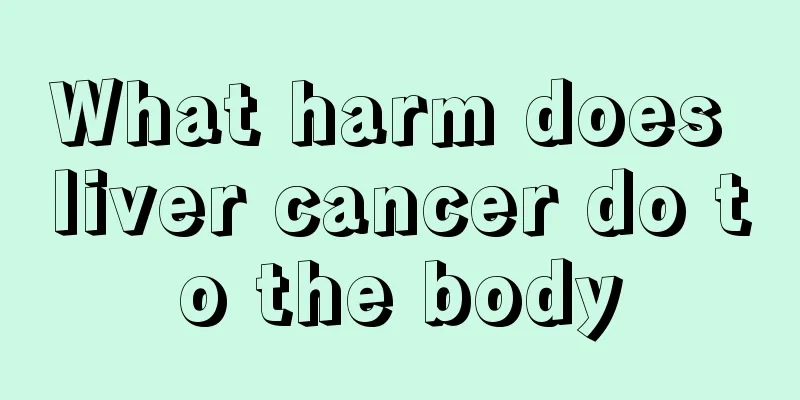What's wrong with feeling dizzy this morning?

|
Sleeping is a very important behavior for our human body. Sleeping can effectively relieve daytime fatigue and replenish energy, and our body's development also occurs during deep sleep. Although sleeping is a good thing, it will make some people feel uncomfortable. Some people will feel dizzy after getting up in the morning. So what happens? Dizziness after getting up in the morning is usually caused by the following situations: 1: Causes of cervical spondylosis. Cervical spondylosis is related to lifestyle habits. The age range of patients is very large, and there are many patients in their 20s. They often experience dizziness after getting up in the morning, and sometimes they dare not open their eyes. In severe cases, they may experience nausea and vomiting. 2: Low blood pressure, irregular diet, or family history of low blood pressure. The dizziness caused by low blood pressure is relatively mild. Because the blood supply to the brain suddenly decreases when changing from a supine position to an upright position, dizziness occurs. The symptoms will gradually improve after returning to a supine or sitting position. 3: Rhinitis and sinusitis (many people have both at the same time). Due to the blockage of the nasal cavity and the decrease in ventilation, the brain does not get enough oxygen when sleeping at night. In the state of long-term chronic hypoxia, dizziness after waking up will occur. 4: Neurasthenia. This type of patient often has trouble sleeping at night, or wakes up easily, and some have many dreams. It seems that although they have slept all night, their brain has not gotten enough rest, so in addition to dizziness, they also feel tired when they wake up in the morning. Some people describe sleeping for a night as being more tiring than working for a whole night. This is the reason for poor sleep quality. (1) Cardiac vertigo: common in arrhythmia, heart failure, etc. (2) Pulmonary vertigo: can be seen in pulmonary failure caused by various reasons. (3) Ocular vertigo: common in refractive errors, retinal arteriosclerosis, hemorrhage and eye muscle paralysis, etc. (4) Blood pressure vertigo: both high blood pressure and low blood pressure can cause vertigo. (5) Others: anemia, cervical spondylosis, acute fever, gastroenteritis, endocrine disorders and neurosis can all cause dizziness. 1. If an elderly person with anemia experiences dizziness, fatigue, or pale complexion, he or she should go to the hospital for a check-up to see if he or she is anemic. Elderly people are prone to anemia if they do not pay attention to nutritional health. In addition, elderly patients with indigestion, peptic ulcers, gastrointestinal bleeding, and chronic inflammatory diseases may all develop secondary anemia. 2. High blood viscosity, hyperlipidemia, thrombocythemia, etc. can all cause high blood viscosity and slow blood flow, resulting in insufficient blood supply to the brain and symptoms such as fatigue, dizziness, and weakness. There are many reasons for high blood lipids, the most important of which is an unreasonable diet structure. 3. Patients with cerebral arteriosclerosis feel dizzy and often suffer from insomnia, tinnitus, emotional instability, forgetfulness, and numbness in the limbs. Cerebral arteriosclerosis reduces the inner diameter of blood vessels and reduces blood flow in the brain, resulting in insufficient blood and oxygen supply to the brain, causing dizziness. 4. Cervical spondylosis often causes tightness in the neck, limited flexibility, occasional pain, numbness and coldness in the fingers, and a feeling of heaviness. Cervical spondylosis compresses the vertebral arteries in the neck, causing insufficient blood supply to the brain, which is the main cause of dizziness caused by this disease. 5. In addition to dizziness, patients with hypertension often also experience discomfort such as headache, palpitations, irritability, tinnitus, and insomnia. 6. In the early stages of coronary heart disease, some people may experience headaches, dizziness, weakness in the limbs, difficulty concentrating, etc. This is mainly due to atherosclerosis of the coronary arteries of the heart, which causes insufficient blood supply and leads to dizziness. 1. The best solution to dizziness is prevention. The elderly should regularly undergo blood pressure, heart sounds, heart rhythm, as well as routine blood tests, blood lipids, blood viscosity, electroencephalograms, cerebral blood flow graphs, neck X-rays and other examinations to prevent problems before they occur. |
<<: What are the symptoms of dizziness and coughing
Recommend
Can expired cooking oil still be used?
In life, some friends may be always busy with wor...
What is the reason for excessive sweating due to cold
Many people sweat in their daily lives, especiall...
What are the symptoms of work anxiety?
Nowadays, people are under great pressure at work...
Which department should I go to for knee surgery
The knee is the most important joint that support...
What medicine should I take for toothache
If your body gets inflamed, it is easy to cause t...
How to treat knee wear?
After suffering from knee joint wear, patients ge...
The white stuff coming out of my nose turned out to be these
The T-zone on the face is the most oily part, esp...
Do you have any of these symptoms of ovarian cancer?
Women with ovarian cancer will experience abdomin...
What is liver cancer MR
What is liver cancer mr? 1. Liver cancer is a ver...
What to do if there is a rot between the toes
Toe ulcers are a common clinical problem. When to...
Is colorectal cancer highly hereditary?
Is colorectal cancer hereditary? Many people do n...
What causes purple tongue coating? Detailed explanation of common factors
A purple tongue can be mainly divided into two ty...
Will tampons generally damage the hymen?
Tampons are a type of built-in menstrual blood-ab...
Protection or harm? How to choose sunglasses for children
We often see celebrity parents putting sunglasses...
When is the best time to dry winter melon
Many people like to eat soup made from winter mel...









